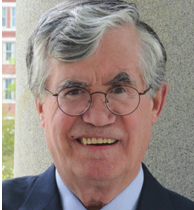(Opinion) Migraine advocacy on Capitol Hill
What it means for New Hampshire patients and their families

JUSTICE
We all remember having to apologize many times when we were kids. I certainly do. I still remember the day my dad told me to go to our neighbor’s front door to confess to breaking their garage door window with an errant baseball. I apologized. It felt really awkward at 10 years old, but my dad was right. I felt better walking home even though I might have to pay for the broken pane with my allowance.
It seemed that whatever our transgressions as kids, we were told to be accountable, to do the right thing and acknowledge our wrongdoing. Whether we pushed someone down at recess, made fun of a classmate, failed to do our chores, copied from a classmate’s paper or told a lie to almost anyone, a teacher, a parent or some adult would tell us to apologize. “I’m sorry” became a part of our verbal menu from a young age. We learned responsibility. We grew.
The secret, of course, was to mean it. Those simple words didn’t instantly restore trust, but saying them was a critical first step toward making amends. Actions always spoke louder than words, then and now, but the simple words of regret were important. They almost always made an uncomfortable situation seem less awkward. They made you feel better about yourself, as hard as it was to accept blame and the shame that often came with it. But apologizing was always the right thing to do as hard as it sometimes felt.
When I reached adulthood and better understood feelings and hurt, I came to really appreciate the power of “I’m sorry,” both for myself and for the person who deserved my apology. I know I have apologized for many things I did or said or failed to do or say over the years, and I have also experienced the power of those simple words when they were directed to me. They made me feel whole and validated. Many lessons from childhood can prove invaluable. “I’m sorry” is one of them — or should be.
For more than two years I sat with adults who had been traumatized as kids by physical and sexual abuse — all of it vile and reprehensible — perpetrated without consequence for over 50 years by state employees in YDC detention facilities.
Those “long-ago kids” were brave enough to share their horrific stories with me so that after decades of denial by the state, closure and justice just might be possible. I was the administrator of the YDC claims fund empowered to hear their stories and make financial awards. It was the hardest work I have ever done but without a doubt the most important. Their impactful stories and their trust have left an indelible mark on me.
At the end of every hearing, I would lean forward and, in a confided way, tell the confessing and drained abuse victim sitting before me that whatever happened to them at the YDC was not their fault and that it never should have happened. Some teared up, some cried, but most just softly thanked me. I always heard the echo “I’m sorry” from my childhood in those moments.
Although I had not abused anyone, the abuse and cruelty I heard about was done in my name and in the names of every citizen of New Hampshire. We all owe them an apology. But since we all won’t have the opportunity I had at the conclusion of those emotional hearings, I urge Gov. Ayotte on behalf of all of us and any state official willing to join her to issue a long-delayed, public and sincere apology to those long-ago kids that our state abused.
Maybe real healing could actually begin if she did. Maybe our integrity and their broken spirits could be restored with a simple, heartfelt “I’m sorry.”
John T. Broderick Jr. is the former administrator of the YDC Claims Administration and Settlement Fund.